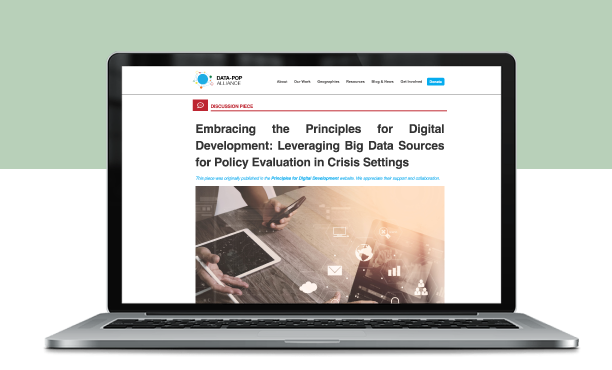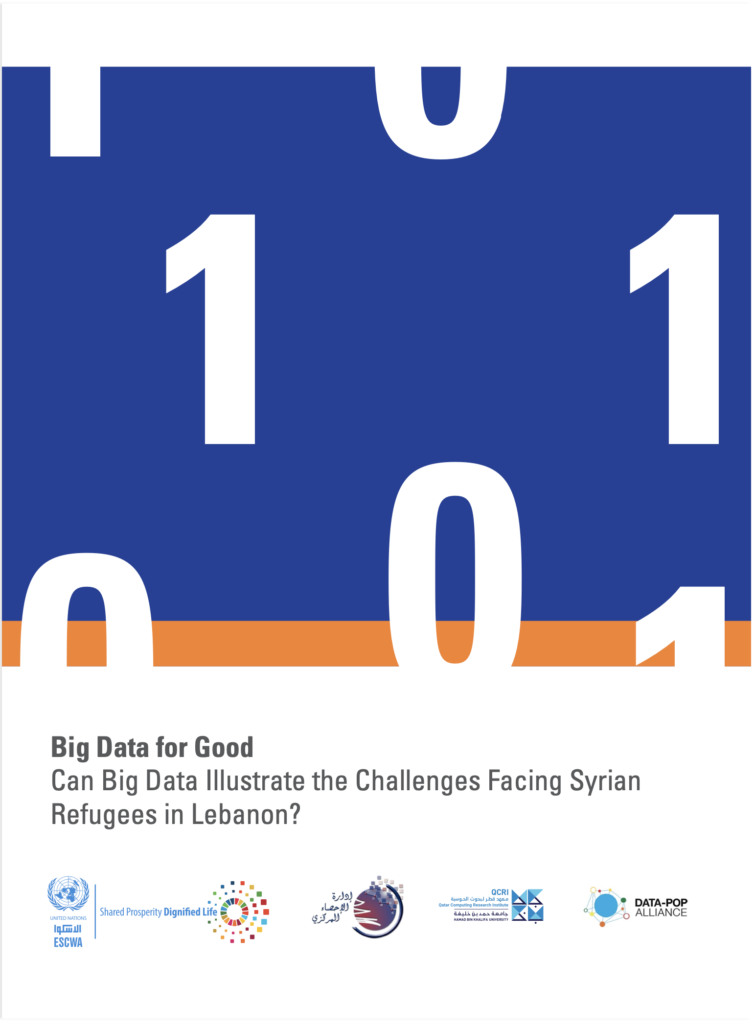Lebanon
5.4
Population 2022 (Millions)
0.71
HDI Score
2021 (Max. 1)
67.5
SDG Score
2023
(Max. 100)
0.43
Gender Inequality
Index Score
(Max. 1)
74
Internet Inclusivity
Index 2022
(100 countries)
Overview
Projects

- Jordan, Lebanon, Middle East and North Africa (MENA)
- July 2020 - May 2021
- Resilient Livelihoods and Ecosystems
- Partner(s): Central Administration of Statistics (CAS) - Lebanon, Department of Statistics (DoS) - Jordan, UN ESCWA (Funder)
Following an initial collaboration with UN ESCWA for the assessment “Leveraging Behavioral and Humanitarian Data Sources to Analyze the Development Challenges Faced by Syrian Refugees and Host Communities in Lebanon”, this project focused on utilizing non-traditional Big Data sources, such as social media and Google search data, to provide timely insights in crisis settings on key topics (economic indicators, access to food, sentiments around specific policies, etc). The DPA team collaborated closely with the Central Administration of Statistics (CAS) of Lebanon and the Department of Statistics (DoS) of Jordan and held several trainings and workshops around the project output.

- Lebanon, Middle East and North Africa (MENA), Syria
- September 2019 to April 2020
- Geographies of Inequalities
- Partner(s): UN ESCWA (Funder)
In partnership with United Nations Economic and Social Commission for West Asia (UN ESCWA) and the Qatar Computer Research Institute (QCRI), this project aimed to understand the extent to which particular sets of non-traditional data sources — or crumb — and methodologies related to Artificial Intelligence can provide insights on the living conditions of Syrian Refugees and host communities in Lebanon. In particular, indicators related to human capital, poverty and demographics were explored. Data from the Central Administration of Statistics (CAS), UN agencies, telecom operators, social network data, amongst others, were used to shed light on the living conditions and interactions of Syrian refugees and local communities in Lebanon. Grounded in the Lebanese context, the project showed how these types of approaches may help national, international and local organizations develop better policies and programmes to meet these populations’ needs, while also providing pathways for them to weigh in on access to data about them.
